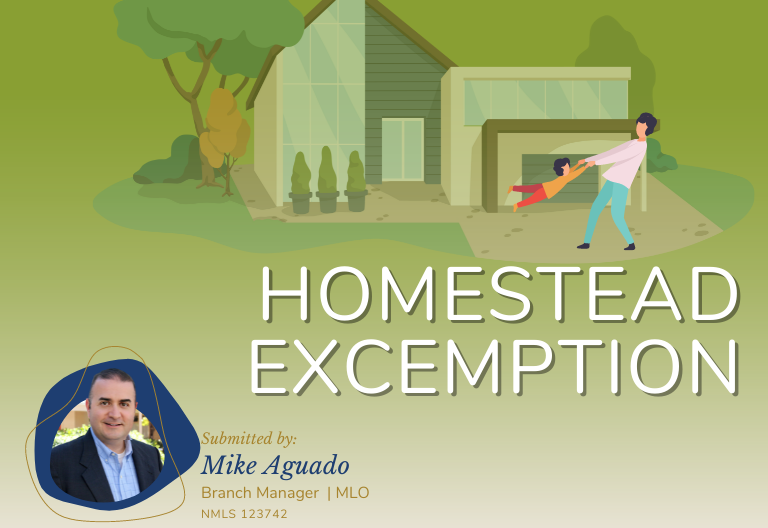
Homestead Exemptions
Michael Aguado, Mortgage Loan Originator | NMLS 123742 Click Here to Apply!
Homestead exemption refers to the possible tax breaks you may qualify for as a primary resident of a location.
Homestead exemptions vary from state to state. You can find more information on your county tax collector’s website. The exemptions can vary based on location, marital status, age, acreage, etc. Be sure to check online or at your local tax collector’s office for details in your area. Below I will be showing you an example of what it means in Florida to give you an idea of the process and benefits.
The Florida Homestead Exemption reduces the taxable value of real property up to $25,000 for an individual or $50,000 per married couple. It is an ad valorem tax exemption provided by Florida law for qualified residents who own and reside on the property as their primary residence. The taxable amount is based on a percentage of the sales price or appraised value.
Under Florida law, the Homestead exemption is only available to US citizens, permanent resident aliens, or others who are legally able to remain in the US permanently under immigration laws. Your deed or document establishing your ownership or beneficial interest as of January 1 must be recorded in the County Public Records before your exemption can be approved, there are requirements that you have to meet:
- You must be a resident of Florida
- You must own and occupy the property as your permanent residence
- You must hold title or beneficial interest to the property
Lowering the taxable value on your primary residence causes your yearly tax bill to be less than if you did not file for the Homestead exemption. Every state has their own rules when it comes to the Homestead exemption and some states do not have it at all. Be sure to consult your local county office or tax professional in regards to qualifications of receiving Homestead exemptions.
